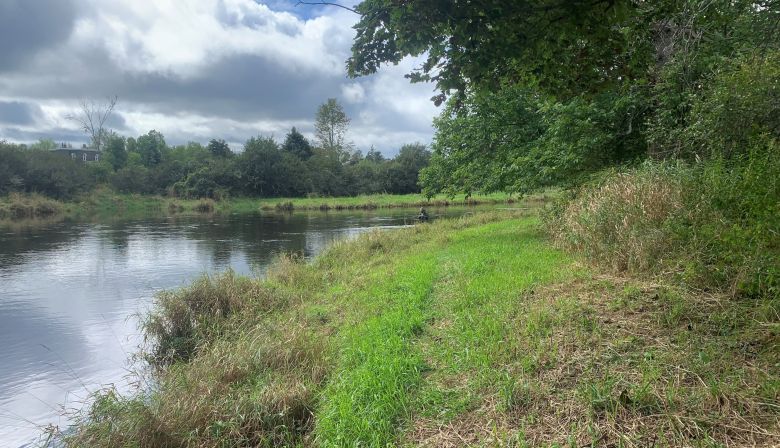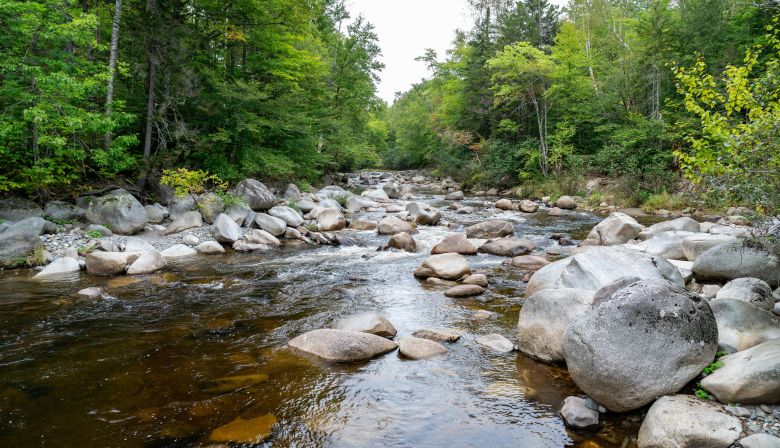
Subscribe & stay up-to-date with ASF


“God, grant me the serenity to accept the things I cannot change, the courage to change the things I can, and the wisdom to know the difference.” – Serenity Prayer
While pursuing my graduate studies at the University of Notre Dame, I focused my research on addressing the human complexities and treatment approaches in addiction recovery, specifically in the context of substance abuse disorder. This academic endeavor, also serving as an exercise in cognitive empathy, acquainted me with the five foundational stages of recovery: pre-contemplative, contemplative, planning, action, and maintenance.
The chasm between the pre-contemplative stage and all the other stages is wide. Pre-contemplation involves denial, a refusal to recognize an existing issue. To progress, an individual must recognize the need for change. Often, this comes after a critical low point.
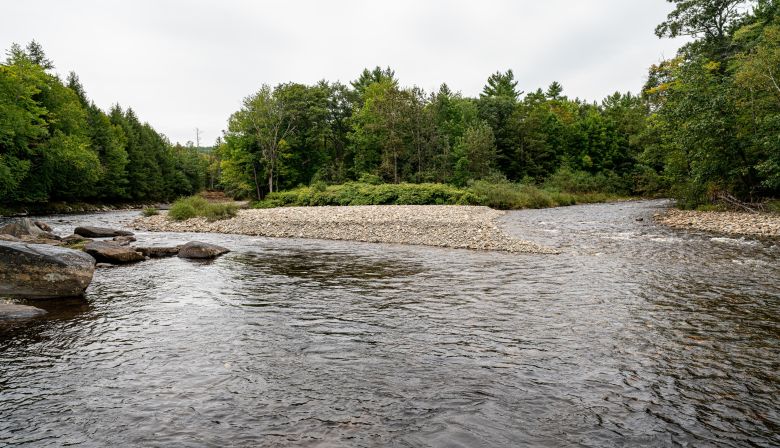
Later, as I explored human-centered research methods, I considered if these stages of recovery could extend to issues facing organizations and society. While writing for Rivernotes this summer, this idea resurfaced in the context of salmon conservation and broader conservation philosophies. I began to ask: Could these stages of recovery supply a framework to better comprehend our current standing in conservation efforts and inform the actions that need to be taken?
Regrettably, the United States serves as a cautionary tale in terms of hitting the rock bottom we strive to evade in other regions. After seeing declining populations for several decades, the year 2000 marked a grim milestone when the species was listed under the Endangered Species Act. This not only brought an end to recreational angling for salmon but also served as an urgent call to action, emphasizing the dire need for change. Fortunately, the subsequent years have shown signs of hope. The recent record-breaking sea run fish returns, coupled with a general positive trend, indicates that our current rehabilitative strategies are making a difference. However, this progress has been achieved through considerable effort by individuals such as ASF’s John Burrows, Maranda Nemeth, Andy Good and Maine DMR’s Paul Christman, Jennifer Noll, and Pete Ruksznis and at a significant financial cost to both taxpayers and private philanthropists—a trajectory that can potentially be sidestepped in areas where salmon populations remain robust.
See updates from the Kennebec and Androscoggin, here!
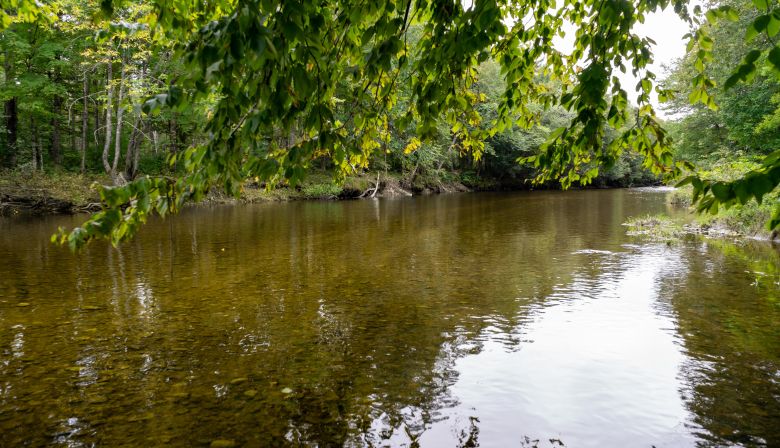
When we reflect on pressing societal challenges, from the global specters of climate change, homelessness, and soaring living costs, to more intimate concerns such as institutional stagnation, communication breakdowns, and our growing digital dependencies, a familiar pattern becomes evident. The crucial introspection we must undergo is recognizing the precise moment when these challenges reach a tipping point. With deeply personal struggles, such as addiction, the acknowledgment often dawns when the damage is irreparable. In the context of some of our other issues, how do we discern that crucial threshold? And once identified, how do we navigate our way back from potential catastrophe?
One might question how this narrative connects to the plight of the salmon. But, as we delve deeper, the parallels are unmistakable. In comparison to historical norms, salmon today wrestle with monumental threats echoing the broader challenges our society faces. Be it the ravages of climate change, the hazards of large-scale monocultures, the pitfalls of overexploitation, the perils of misinformation, or numerous other cumulative stresses—each acting as a dagger, contributing to the slow bleed that is sapping this invaluable species of its essence, pushing it closer to an ecological precipice.
Organizations like ASF have tirelessly championed their cause, achieving notable progress. Yet, across salmon country, we are faced with critical choices. What actions best serve salmon? What factors are within our purview? How can we muster the collective courage to prioritize salmon, transcending our emotional, cultural and intellectual differences, before it’s universally too late?
The loss of salmon from various ecosystems carries ramifications that transcend mere environmental impact. What is also eroded is our profound spiritual connection to the species. The cascading effects ripple through generations, stifling the emergence of future advocates whose impassioned advocacy would otherwise be fueled by their emotional ties to these places and experiences. This absence further amplifies the complexity of surmounting the myriad barriers impeding restoration and conservation efforts
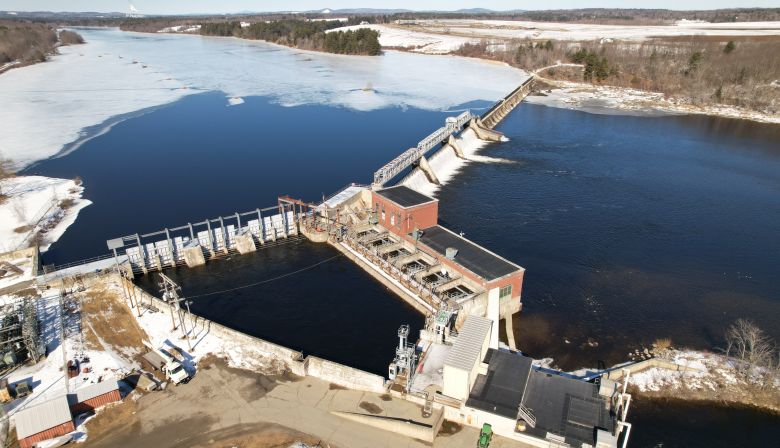
In striking similarity, individuals navigating the arduous path of recovery encounter parallel dilemmas. Hitting rock bottom often erodes the foundational belief that change is indeed possible, reinforcing the disheartening mantra that ‘people don’t change.’ Such sentiments don’t emerge in a vacuum; they are rooted in the contextual realities that individuals have acclimatized to. Negative habits and practices, once instigators of failure, become so ingrained over time that they assume an aura of normalcy, consequently validating an anticipatory mindset of failure. These self-fulfilling prophecies stem not merely from behavioral patterns but from an inner void—a spiritual and psychological ecosystem drained of hope and belief.
It’s essential to acknowledge that such cycles of despair can be broken. However, this requires a transformative shift in mindset and a conscious effort to rewrite the narratives that we’ve internalized. We must imbue our individual and collective spirits with a renewed sense of possibility and belief, for then, meaningful change can unfurl.

The question “What is best for salmon?” should be a constant refrain in our deliberations. This guiding principle extends beyond mere policy—it’s a moral imperative that adds a spiritual dimension to our collective endeavors. It challenges us to rise above ego-driven concerns and connect with a higher purpose. Fortunately, some regions have not yet reached a critical tipping point and can serve as lifebuoys, underpinning efforts to revitalize more vulnerable salmon habitats. It’s essential to remember that the fate of wild Atlantic salmon is a collective endeavor, intricately linked not just among the various populations of the species itself, but also across diverse human populations.
Within our scope of influence lies the important responsibility to prioritize the preservation and well-being of Atlantic salmon. Our unique perspectives and skills are not obstacles but assets, providing we recognize them as such and apply them constructively.
As we navigate the maze of conservation, human involvement, and ethical dilemmas, several critical questions confront us: Do we acknowledge the pressing need for change? Do we possess the discernment to identify what can and should be altered? And will we act collaboratively and decisively in areas within our control, while also championing more comprehensive changes that lie beyond our immediate reach?
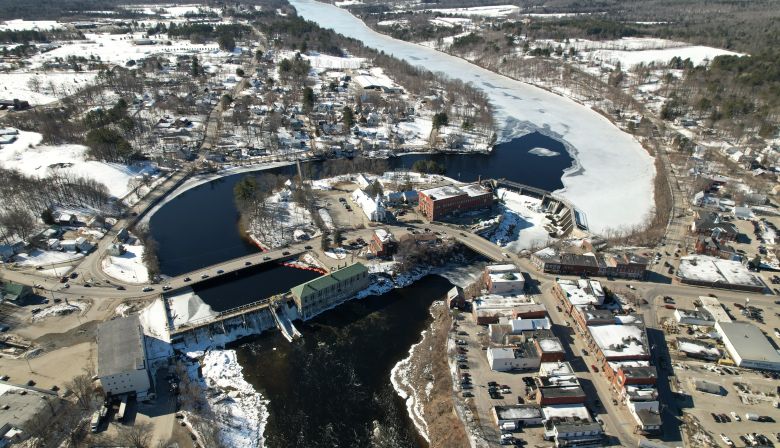
Our answers to these questions will not only shape the future of Atlantic salmon but also reflect our societal values and commitment to collective action. They challenge us to be both conscious of when it is time to change our approach and wise in the ways we approach urgent conservation and relational issues.
To listen to ASF Maine on the Maine fly fishing podcast, click here!
Thank you for being part of the Rivernotes community and tuning in each week as I navigate the stunning, rugged landscapes of salmon country. As always, share the Rivernotes blog with friends who might appreciate these stories. Each share and gift given becomes a ripple that could spark a wave of change.
Please consider contributing to ASF, HERE.
Also, I love hearing from you all, especially those of you who challenge me to do a better job! Please, always feel encouraged to reach out directly to Rivernotes@asf.ca or Pdore@asf.ca with comments, questions, or concerns!
Until next week, stay sharp, and tight lines!
Peter
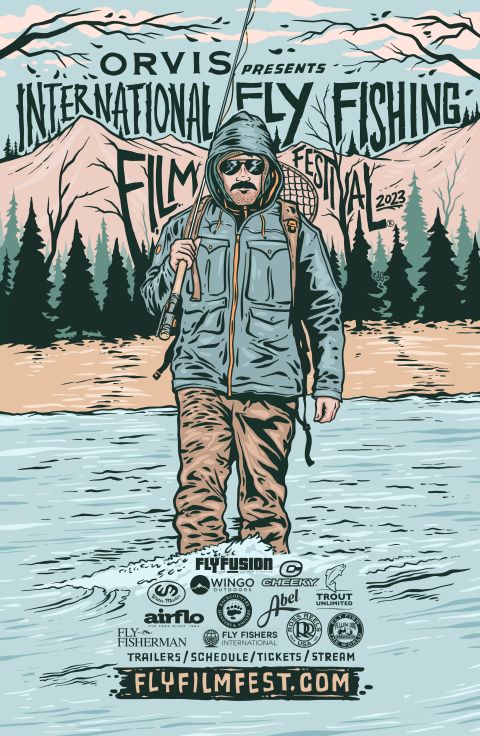
ASF and Oxbow to host IF4!
Get ready for a night of incredible films and fun giveaways hosted by the Atlantic Salmon Federation at Oxbow Brewing in Portland, Maine on October 10th. The International Fly Fishing Film Festival is an event you don’t want to miss! Plus, admission is free.
Don’t forget to make a donation to ASF to help protect wild Atlantic salmon. Each donation makes you eligible for the awesome gear and swag giveaway at the event!
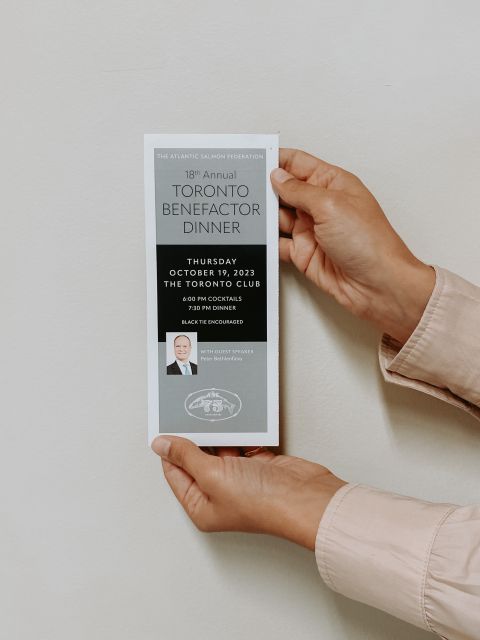
Wade out of the rivers and into your black-tie best! Join us at the Toronto Club for ASF’s 18th annual Toronto Benefactor dinner on Thursday, October 19th. Tickets are available here.
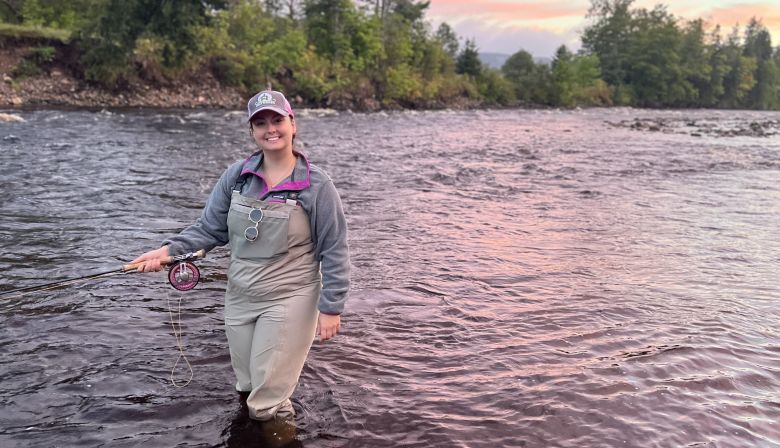
Deirdre Green, Nova Scotia Program Director, reports:
Heavy rains, cool nights and taking fish. September in Nova Scotia is in full swing. With many rivers at bank full, dedicated and novice anglers alike continue to hook beautiful fish and share with me their optimism for strong fall returns.
This past weekend, one of our newest team members, ASF Communications Director, Kristen Noel tried her hand at fishing on the Margaree. After just one short session, Kristen had her alarm set for 5am and hooked her first Atlantic in the upper portion of the river. A natural communicator and a natural angler, be sure to say ‘hello’ to Kristen when you see her on the river this fall. Suffice it to say: she came, she saw, and she caught the bug! You’re in good company, Kristen. Congratulations!
As always, the next two months are chock-full with events surrounding salmon and conservation. Please join in and support your local groups wherever possible.
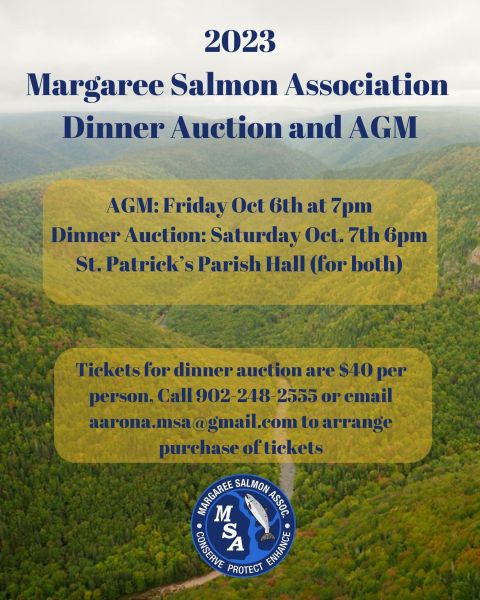

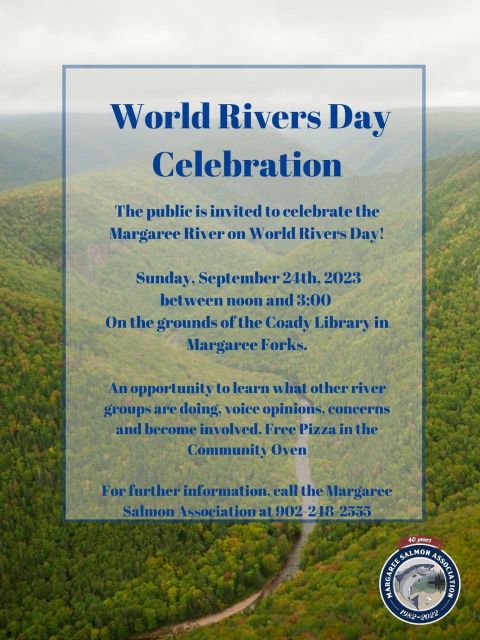
Mike Bardsley, Nova Scotia Salmon Association Secretary, reports:
There is no season quite like the fall in Nova Scotia. Many more angling opportunities and scheduled rivers open and both salmon and trout spread throughout our province.
A summer of biblical, drenching rain has brought fish, and angling success, early and often. North Shore mainland rivers are now open and alive with singing reels and happy anglers – both chasing Atlantic’s and some truly impressive brook and brown trout.
All this water helped the Margaree have a tremendously healthy summer. While catches appear to be slowing, anglers will be rewarded soon with the most stunning backdrop of fall colours, with occasional fish crushing select marabous and shrimp.
Take a day, or three, to get out there and enjoy.

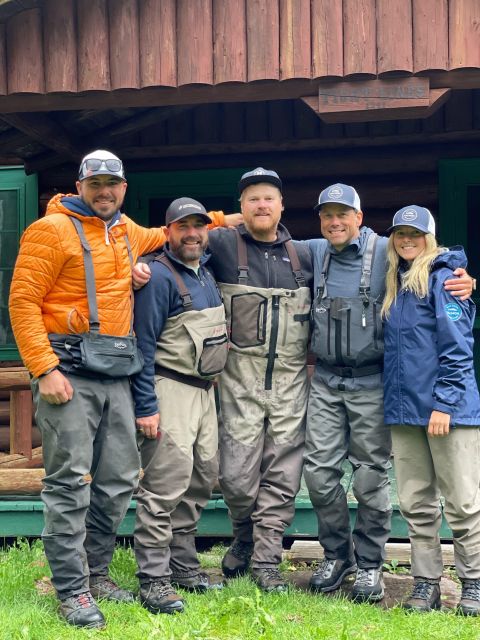
The hurricane wasn’t nearly as bad on the Northumberland Strait side of Nova Scota or in Cape Breton, where several ASF staff and partners were gathering in the Margaree valley for the inaugural Wild Salmon Watersheds network meeting. The Margaree, the Middle, and countless other small rivers and streams along the beautiful drive to Cape Breton were in fantastic shape water-wise. A nice heavy fall flow. Anglers on the Margaree were commenting that the salmon had a bad case of lock-jaw lately! But all were enthusiastic about the perfect water conditions and expecting the fall run to begin streaming in.
The Northumberland Strait rivers really come into their own in the fall season, and conditions are shaping up very nicely. ASF’s Nova Scotia Program Director, Deirdre Green, showcased some of her home water to us on the drive home from Cape Breton. I hope there will soon be many tight lines by anglers visiting these small yet productive rivers of mainland Nova Scotia as the fall run comes in.
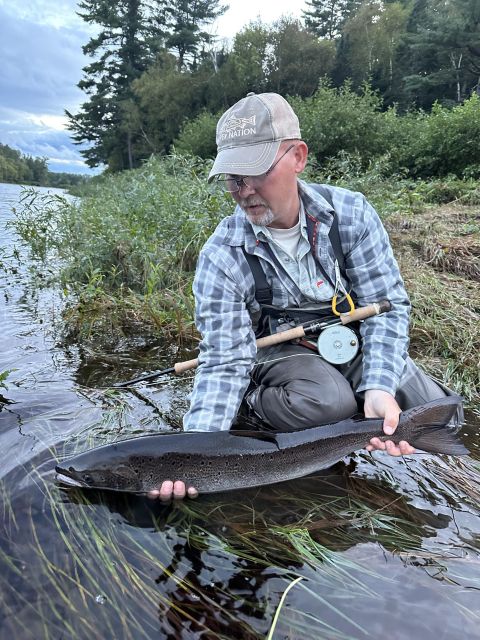
Read an updated report from the Dungarvon here!
Read an updated report from the NW Miramichi here!
Tickets for the Miramichi Salmon Museum’s Salmon Spectacular Raffle are on Sale Now!
Buy a ticket (or more) on the 2024 Salmon Spectacular Raffle before 5:00 pm (AST) on Thursday, December 14, 2023, for a chance to win THREE TIMES with each ticket: on the Early Bird Draw and on items numbered 11-24. Those winning tickets will be returned to the drum for a third chance to win one of the Grand Prizes numbered 1-10. The draw for items 1-24 will take place on Saturday, January 13, 2024. Tickets are available at the Atlantic Salmon Museum by calling 506-365-7787, or by clicking the link below.
E-transfers (if you are a resident of NB) are available at museum@nbnet.nb.ca. Cash, debit and credit cards are also accepted.
Draw will be held on Saturday, January 13, 2024, at the Atlantic Salmon Museum in Doaktown (live-streamed on our Atlantic Salmon Museum Facebook page) starting at 10:00 am AST.
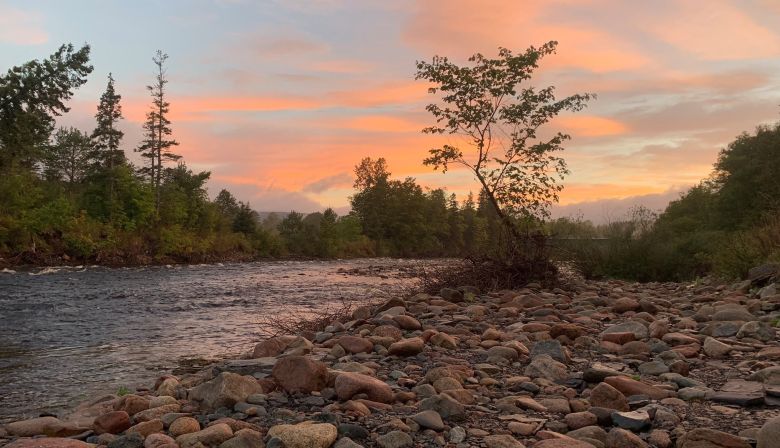
Hurricane Lee swept through the province last weekend, pounding us with rain and leaving some rivers looking like spring freshets. Many areas received between 50-100 mm (about the length of the long edge of a credit card) of rain over 24 hours. Since we’ve had such a wet season, landscapes are saturated already, and the hurricanes rainfall ran off quickly. The Nashwaak River rose 2 m (7 feet) overnight on Saturday!
Rivers are dropping quickly, and anglers should be set up nicely for the next few weeks to close out the season with good water conditions. Fishing has been quite slow in many areas in this early fall season, consistent with the rest of the summer in most rivers, with a few exceptions. All are hoping that this big rise in water will bring in the fall run and liven up the fishing. Enjoy a beautiful and colourful few weeks on the water!
